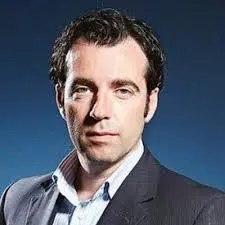Call for rethink on ‘draconian’ child sex offender laws
An Adelaide forensic psychologist who specialises in deviant sexual behaviours has raised concerns about state government plans to target child sex offenders with tough new laws, saying rehabilitation and preventative treatment programs should be supported.


Photo: AAP/Jono Searle
Announced last week, the state government intends to introduce harsh laws targeting paedophiles, including indefinite detention for repeat child sex offenders and lifetime electronic monitoring for those released from prison.
It sparked a rebuke from some state and national legal bodies, including the national criminal justice spokesperson for the Australian Lawyers Alliance (ALA), Greg Barns SC, who said the laws would “result in injustice and are a dangerous breach of the separation of powers by interfering with judicial discretion”.
Luke Broomhall, a forensic psychologist who has been vocal in the past about the need for preventative treatment for those that have not acted on their sexual urges towards underage people, says the proposed laws were problematic.
He told InDaily that child sexual abuse was a “serious problem”, but there was an issue with “broad sweeping laws which cover all persons, when there might be more effective ways to manage the behaviours of people who are at high risk for recidivism”.

Forensic psychologist Luke Broomhall.
“There are more effective ways of identifying and treating individuals than are currently being engaged in, and probably more effective than the proposed laws might be,” Broomhall said.
“When we’re talking about people who are likely to engage in recidivism, we know that there are certain factors.
“Risk assessment is fraught with difficulty, but we do know that the degree of sexual deviance, criminal history and past sexual offending, the person’s age, how early the onset of their offending was in terms of their age, whether they were victims as children themselves, their engagement with substance abuse, psychological and mental health issues – we know that those types of issues are likely to lend themselves more towards recidivism.”
He said treatment programmes should be prioritised and tailored to an individual’s risk profile, rather than broad laws that fail to consider individual circumstances.
“I’m always going to be unapologetic in stating that funding in this area being allocated reasonably towards rehabilitation programming that is meaningful and effective is going to be a very effective way of achieving the goal of reducing repeat offending,” he said.
“What determines an effective rehabilitation programme is the ability for resourcing to allow the highest level of intervention to the highest risk – so tailored intervention programmes – so that we’re providing treatment services to people who have identified as having the highest risk and highest needs.
“There is a dearth or paucity of community-based treatments and rehabilitation providers and programmes. People really need that sort of assistance when they come out of prison and go back to their normal lives. That’s when the pressures and maladaptive coping mechanisms return to the fore.”
Though the proposed laws might capture those who are at high risk of repeat offending, he said that applying laws “broadly” across a sector would be a “waste of money”.
“We’d rather be able to assess people and see what their level of need is, and direct the services to those people based on the level of risk they present with,” he said.
New data released by the Productivity Commission has found state and federal governments are spending $6.4 billion per year on the construction and operation of prisons – nearly double the nationwide spend a decade ago.
Institute of Public Affairs research analyst Mia Schlicht said the data “demonstrates governments are not solving the crime crisis, but merely spending record levels of taxpayers’ money on a system which is not fit for purpose and in dire need of reform”.
“Across Australia there are too many communities suffering the effects of intolerable crime levels, particularly youth crime. Yet the data shows the criminal justice system, despite long-term, record levels of spending, is not solving the problem,” Schlicht said.
“There has never been a more compelling case for wholesale criminal justice reform, with record levels of funding being dedicated to prisons at the same time as violent crime is out of control in far too many communities.”
Broomhall said that “we need to see people who engage in harmful sexual behaviour as people in order to be able to assist them” – a point he said “people are not keen on”.
“The other approaches which have been used – ‘lock ‘em up and throw away the key’ – it doesn’t work. That’s not going to have an effective outcome, and it’s very costly as well for people who are at low risk of recidivism,” he said.
“There has to be a way for the judiciary to be able to have an ability to assess each case on its merits.
“For the people who engage in these harmful sexual behaviours, if they were told they were being locked up indefinitely, where’s the incentive to look at working on or changing anything around their personality or their emotions, their desires or their behaviours?”
Broomhall who is also president of the Australian & New Zealand Association for the Treatment of Sexual Abuse, pointed to services like StopItNow.org – a helpline for those concerned about their own thoughts towards children.
“I think people would be shocked at the volume of calls that can come into these numbers,” he said.
“A lot of people identify that they have thoughts in this regard and find that they’re not right or that they’re going to cause harm and they want to seek help. They just don’t know where to go.”




